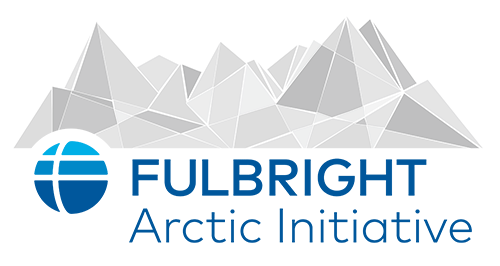
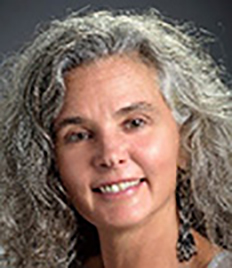 |
Dr. Elizabeth Lynne Rink (Co-Lead) USA Dr. Elizabeth Lynne Rink is a Professor of Community Health in the Department of Health and Human Development at Montana State University, Bozeman, MT, USA. She received her Ph.D. in Public Health from Oregon State University in Corvallis, Oregon, USA. Dr. Rink conducts mixed-methods, community based participatory research with Indigenous communities in Montana and Greenland to address the social determinants of reproductive health. She is particularly interested in how diverse systems in the human ecology influence reproductive health, ethical practices in research, and developing innovative intervention models. Dr. Rink is a Robert Wood Johnson Foundation Interdisciplinary Research Fellow examining the implementation of trauma informed policies within Indigenous governance structures to promote reproductive health equity. Dr. Rink was a scholar in Cohort II of the Fulbright Arctic Initiative Program and completed her exchange with the Thule Institute at the University of Oulu, Oulu, Finland. She serves as a faculty research mentor with the Center for American Indian and Rural Health Equity at Montana State University and the Montana-Alaska American Indian/Alaska Native Center for Clinical and Translational Research. Her research receives funding from the National Science Foundation, the National Institute of Health and the Robert Wood Johnson Foundation. |
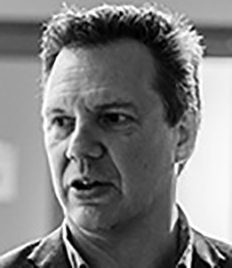 |
Dr. Greg Poelzer (Co-Lead) Canada Dr. Greg Poelzer is a Professor in the School of Environment and Sustainability (SENS) at the University of Saskatchewan. He is the Co-Director with Dr. Bram Noble of a multi-million dollar SSHRC Partnership Grant (2019-2026), Community Appropriate Sustainable Energy Security (CASES), which spans 15 Indigenous and Northern communities across Canada, Alaska, Norway, and Sweden. He also is the Lead of the Renewable Energy in Remote and Indigenous Communities Flagship Initiative at the University of Saskatchewan and Lead of the UArctic Thematic Network on Renewable Energy. Dr. Poelzer is an alumnus and lead of the Energy Group of the inaugural Fulbright Arctic Initiative cohort. His exchange took place at ISER, University of Alaska Anchorage. Dr. Poelzer serves as an Advisor and Negotiator for SaskPower, working toward a global settlement with a major First Nation in northern Saskatchewan that will resolve historical issues and build new relationships going forward. A political scientist by training, his deep connections with industry, government, NGO’s and Indigenous communities in Canada and across the circumpolar states are successfully driving both initiatives. For over twenty-five years, Greg Poelzer has engaged in research focused on comparative politics and policy as it relates to Aboriginal-state relations; energy and resource development in the Circumpolar north; capacity-building in northern regions; and northern development. He has written extensively on the historical and contemporary aspects of communities located in the circumpolar north and the Canadian sub-arctic, focusing on Aboriginal development, the development of regional infrastructure and the mining sector. His previous works have examined community engagement in environmental assessment for resource development; strategic environmental assessments for Arctic offshore energy planning and development; and Aboriginal political culture in Northern Saskatchewan. Greg’s first book, Arctic Front: Defending Canada in the Far North (2008), was awarded (with his co-authors) the Donner Prize for excellence and innovation in Canadian public policy writing. His second co-authored book, From Treaty Peoples to Treaty Nation: A Road Map for All Canadians, focuses on Aboriginal success stories and approaches to improved Aboriginal-state relationships, was published in 2015, and shortlisted for three book awards. In addition, Dr. Poelzer was the founding director of the International Centre for Northern Governance and Development (ICNGD), and former Dean of Undergraduate Studies at the University of the Arctic (2003-2008). |
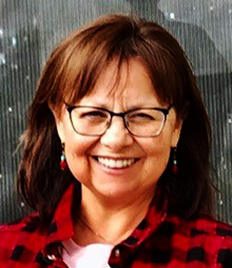 |
Bonita Beatty Canada Bonita Beatty is from northern Saskatchewan and a member of the Peter Ballantyne Cree Nation. She has a PhD in Political Science from the University of Alberta, specializing in First Nations governance, policymaking, and delivery of public services, particularly health services. She joined the Indigenous Studies faculty in 2007 and was an undergraduate chair with the department of Indigenous Studies. She was a founding member of the International Centre for Northern Governance and Development (ICNGD) at the University of Saskatchewan, as well as a graduate chair of its masters in northern governance program. Her background includes extensive community development, governance and management work experience. Prior to 2007, she was an Executive Director of Health and Social Development for the Federation of Saskatchewan Indians and former Executive Director of Peter Ballantyne Cree Nation Health Services. She was also a senior policy analyst on northern issues with the provincial government, Saskatchewan Indian and Metis Affairs Secretariat. |
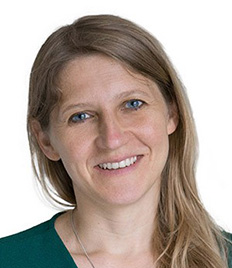 |
Lill Rastad Bjørst Kingdom of Denmark Lill Rastad Bjørst is an associate professor at Aalborg University. A particular strength of her research profile is her 15 years’ experience researching climate change as a scholar within the human and social sciences as well as her many years of experience with research management both as a principal investigator (PI) and work package leader (WPL) and as the head of CIRCLA—Centre for Innovation and Research in Culture and Living in the Arctic and as a research coordinator of the cross-faculty interdisciplinary platform AAU Arctic (2016-19). |
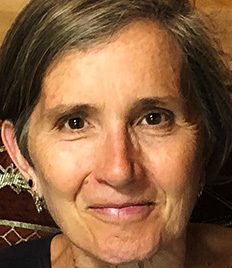 |
Susan Crate United States Susan A. Crate is a Professor of Anthropology in the Department of Environmental Science and Policy at George Mason University, USA. An environmental and cognitive anthropologist, she has worked with indigenous communities in Siberia since 1988. Her research focuses on operationalizing the engagement of the diversity of knowledge systems available in a given context to best understand how climate change was coming into local ecosystems and cultural worlds and to develop effective responses and policy prescriptions. This research agenda has also expanded to arctic Canada, Peru, Wales, Kiribati, Mongolia and the Chesapeake Bay, Virginia. She is the author of numerous peer-reviewed articles, two edited volumes, and two monographs. Her service on international and national initiatives includes Member of the Norwegian Scientific Academy for Polar Research, lead author on the IPCC Special Report on Oceans and Cryosphere and member of the American Anthropology Association’s Task Force on Climate Change. |
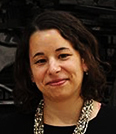 |
Jaime DeSimone United States Jaime DeSimone is the Curator of Contemporary Art at the Portland Museum of Art in Maine, where she curated the exhibitions Ragnar Kjartansson: Scenes from Western Culture (2019–20) and Carrie Moyer and Sheila Pepe: Tabernacles for Trying Times (2020). She is currently spearheading the PMA’s first international exhibition, The North Atlantic Triennial, with the Reykjavik Art Museum in Iceland and the Bildmuseet in Sweden. DeSimone received a Curatorial Research Fellowship from The Andy Warhol Foundation for the Visual Arts for this project in 2019. She holds a master's degree in American contemporary art from American University (2005) and a bachelor's degree in art history from Bates College (2001). |
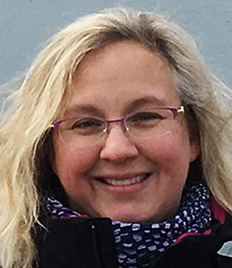 |
Jessica Graybill United States Jessica K. Graybill received her Ph.D. in Geography and Urban Ecology from the University of Washington in 2006 and is currently Associate Professor of Geography and Director of the Russian & Eurasian Studies Program at Colgate University. Her primary research interests are in urban and socio-environmental transformations, especially as they relate to the impacts of resource extraction and climate change on local and indigenous communities. She is past president of the Russian, Central Eurasian, and East European Specialty Group and the Polar Geography Specialty Group of the American Association of Geographers. She is a recipient of American Council for Learned Societies (2009-10) and Fulbright (2014-15) fellowships, both awarded for research related to resource use, extraction and climate change in the Russian Far East. Currently, she is a co-principal investigator on three National Science Foundation grants (Arctic Frontiers of Resources and Sustainability, Arctic Coast, and Arctic Synthesis of Sustainability). She is the Editor of Polar Geography and recent publications include Cities of the World, 7th Edition (2019) and “Emotional Environments of Energy Extraction in Russia” (2019) in the Annals of the American Association of Geographers. |
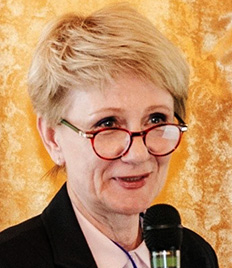 |
Elena A. Grigorieva Russia Dr. Elena A. Grigorieva is the leading researcher in the laboratory of regional social-economical systems, Institute for Complex Analysis of Regional Problems, Russian Academy of Sciences, Far Eastern Branch (ICARP FEB RAS), Birobidzhan, Russian Federation. She graduated as a Specialist with Honors in Meteorology, Russian State Hydrometeorological University, St.-Petersburg, Russia. Elena has her PhD in Environmental Science from the Far-Eastern Federal University, Vladivostok, Russia.Elena is the Associate Professor in Ecology (Environmental Sciences). Her research interests cover a number of themes in biometeorology, which include: Climate and human health, Environmental Health Threats by Climate, Human thermal acclimatization in extreme climates, Human bioclimatic indices, Urban climate, Climate and Tourism, Climate and Agriculture. Gr. Grigorieva has published more than 50 academic papers in the past 5 years, exclusively or in cooperation. She is a well-known bioclimatologist, an active member (2005–present) and Vice President (2014–2017, 2017–2020, and 2020–2023) of the International Society of Biometeorology (ISB), and member of ‘Climate, Tourism and Recreation Commission’, and ‘Climate and Human Health Commission’ in ISB. Elena is a member of ‘Women in Science and Engineering Committee’ in ‘Association of Academies and Scientific Societies in Asia’ (2017–2019, 2019–2021). Elena serves as Editorial Board Member in “Regional Problems”, ICARP FEB RAS (2002–present time), Editorial Board Member in “International Journal of Biometeorology”, Springer (since 2020), Topic Editor in Journal Topics Board of scientific journal “Climate”, MDPI (since 2020). Elena’s hobbies and interests are: outdoor adventures, hiking, tourism, recreation; reading. |
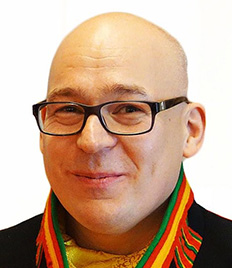 |
Ketil Lenert Hansen Norway Ketil Lenert Hansen is an indigenous (Sámi) epidemiologist and public health professor at UiT The Arctic University of Norway (100%) and Professor II (20%) in Indigenous Pedagogy at Institute of Sámi Teaching Education and Indigenous Journalism Study, Sámi University of Applied Sciences, with over 20 years of mixed methods research experience within the Norwegian indigenous Sámi people. This work has included research on discrimination, bullying, health inequality, violence, disability, resilience, child welfare, somatic- and mental health among Sámi children, youth and adults. His community engagement work has spanned regional, national, and international efforts. He has also been involved in teaching programs and developed courses in public health for masters and PhD students, taught at several circumpolar summer schools for PhD students in Norway, Sweden, Finland and Russia. Lenert Hansen has received several awards for my circumpolar research, eg.: Jens Peder Hart Hansen Award (2012) and Dissemination prize from the Faculty of Health Sciences, UiT (2018). Today, he serves as a member of the Lancet Commission on Arctic Health: Accelerating Indigenous Health and Well-Being. “As an indigenous (Sámi) professor of public health the Community Dimensions of Health for indigenous people in the Arctic are very important to me and close to my heart. My ancestors lived a nomadic lifestyle in the northern part of Scandinavia for hundreds of years. They were predominantly reindeer herders and, several of my family member still continue this tradition today, on the biggest island in Norway, Hinnøya (Linnasuolu, North Sámi language).” |
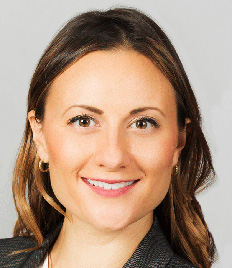 |
Andrea Kraj Canada Dr. Andrea Kraj is an independent scholar and a computational engineer with expertise developing algorithms to predict and optimize renewable energy systems in remote community applications for enhanced energy security. Her research areas include: 1) developing analytical methods to predict, investigate and optimize energy generation and storage for remote communities 2) Remote and rural Community Power 3) Smart Microgrids and Communities Dr. Kraj completed her undergraduate degree in Mechanical Engineering with Aerospace specialization, her MSc in Mechanical Engineering for icing mitigation for cold climates and her PhD in Mechanical Engineering in Intelligent Computational Infrastructures for Optimized Autonomous Distributed Energy Generation in Remote Communities, at the University of Manitoba. Dr. Kraj set precedent in Manitoba with her work in utility scale community owned wind farm development, helping rural farming communities characterize their resources, establish community cooperative businesses models for their energy projects and create feasible 150-300MW wind energy projects. Her foundational work in energy policy for community power projects enabled communities to retain ownership through project development and lead other communities to do the same. Her vision in community energy policy and microgrid technology is leading Northern Remote Communities to employ the community power model for empowering themselves with the appropriate energy technology at their location using smart microgrids. Dr. Kraj additionally advises on design innovation in business and founded CORE Renewable Energy Inc., a company dedicated to empowering community orientated renewable energy worldwide through accurate, intelligent and affordable modelling and operations. |
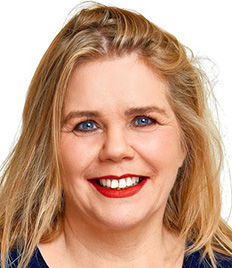 |
Sigríður Kristjánsdóttir Iceland Sigríður Kristjánsdóttir is the Dean of Department of Planning and Design, Associate Professor and Director of the Master program in Planning at the Agricultural University of Iceland. Kristjánsdóttir earned a B.Sc. in Geography at the University of Iceland (1994). She received a Fulbright grant to study at University of Minnesota in 1992. She has a master’s degree in Urban Planning and Design from University of Washington, Seattle, USA where she studied on a Valle Scholarship in 1998-2000. She studied architecture in Rome, Italy, in 1998. She has a Ph.D. in Environmental Sciences from the University of Birmingham, UK, and her thesis studies the urban morphology of Reykjavík. She is a certified planner in Iceland. Kristjánsdóttir is an active contributor to international research projects, particularly collaboration between the Nordic countries and has written on various aspects of Icelandic planning, sustainability, and urban morphology. Her latest book is Nordic Experiences of Sustainable Planning: Policy and Practice ed. (Routledge 2017). |
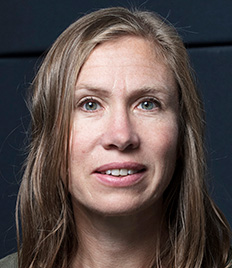 |
Anna Krook-Riekkola Sweden Anna Krook-Riekkola is Associate Professor in Energy Engineering at Luleå University of Technology (LTU), where she leads a research team within Comprehensive Energy System Modelling www.ltu.se/TIMES-Sweden. Her research is within system analysis, energy transition and modelling with focus on long-term energy and climate policy assessment. She teaches courses in Sustainable Energy Systems, Environmental System Analysis and Sustainable Development. Krook-Riekkola has long experience in using system analysis and energy system optimization models (ESOM) to support decision makers on national, EU, regional and municipality level. She has worked with the ETSAP MARKAL/TIMES modelling framework since 2001, and has developed the TIMES-Sweden model, first within two EU projects (as a part of a European model) and then within her PhD project. Based on TIMES-Sweden, she has provided policy support to the Swedish Government (Krook-Riekkola 2016, Krook-Riekkola 2018). Previous positions include senior researcher at EU-JRC in Petten, the Netherlands (2009-2011), and Skellefteå Kraft a municipality energy utility company working with power market strategies and municipality energy planning (1997-2001). She holds a PhD in in Energy Systems Technology from Chalmers University of Technology focused on Energy System Modelling for Supporting Energy and Climate Policy Decision‐making (2015), a Master of Science from the faculty of Civil and Environmental Engineering at Norwegian University of Science and Technology (1997), and an energy engineering degree from Umeå University (1993). |
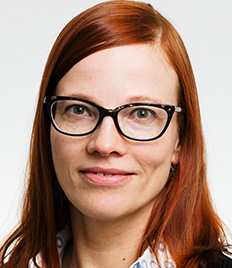 |
Rauna Kuokkanen Finland Rauna Kuokkanen (Sámi) is research professor of Arctic Indigenous Studies at the University of Lapland (Finland) and adjunct professor at the University of Toronto. Prior to her current position, she was a professor of political science and Indigenous Studies at the University of Toronto. She is the author of three books, Reshaping the University: Responsibility, Indigenous Epistemes and the Logic of the Gift (2007), Boaris dego eana: Eamiálbmogiid diehtu, filosofiijat ja dutkan (in the Sámi language, translated title: As Old as the Earth. Indigenous Knowledge, Philosophies and Research, 2009), and award-winning Restructuring Relations: Indigenous Self-Determination, Governance and Gender (Oxford University Press, 2019). Her research focuses on comparative Indigenous politics, Arctic governance, Indigenous feminist theory and legal traditions, and Nordic settler colonialism and has most recently published in Human Rights Review, Settler Colonial Studies and International Journal of Heritage Studies. Currently she leads the Siida School project, a community driven, collaborative project by Sámi scholars, artists and activists. |
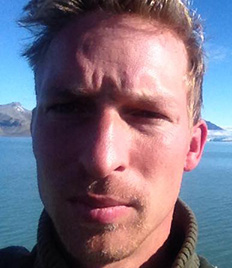 |
Peter Wilhelm Linde Kingdom of Denmark Peter WL Linde is currently serving as Chief Counsellor for Arctic affairs in Danish Ministry of Foreign Affairs. Here he is responsible for various issues, including public outreach, security policy and relations with the EU. For more than a decade, he has worked on Arctic related issues and preserved the interests of the Kingdom of Denmark in close cooperation with the Faroe Islands and Greenland. This includes work on relations with the EU, fisheries, coordination of the work in the Arctic Council and implementation of the Arctic strategy for the Kingdom of Denmark. He has also served as Commissioner to the International Whaling Commission, where he helped to secure a long-term solution on whaling opportunities for the indigenous communities. Mr. Linde is co-author on the Danish commentary on EU Law, EU-Karnov, where he writes about the EU’s Overseas Countries Territories (OCT’s), including Greenland. He holds a Master’s Degree in Law from the University of Copenhagen and has been employed with the Ministry of Foreign Affairs since 2006. He has also been Lecturer and Assistant Professor in EU Law at the University of Copenhagen. |
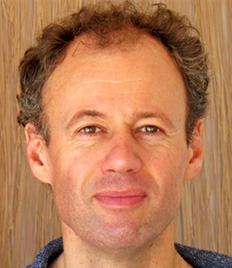 |
Rainer Lohmann United States Rainer Lohmann is Professor of Oceanography at the University of Rhode Island’s Graduate School of Oceanography (US). His training combines a degree in chemical engineering (EHICS, Strasbourg, France) and a PhD in Environmental Science (Lancaster, UK). Lohmann is Director of the Superfund Research Center at the University of Rhode Island (Sources, Transport, Exposure and Effects of PFAS – STEEP), that encompasses cutting edge multidisciplinary research with training, community engagement and research translation activities. His research focuses on the detection, transport and fate of man-made persistent, bioaccumulative and toxic chemicals. His scientific collaborations in the Arctic region include scientists from Environment Canada and local communities, the German Alfred Wegener Institute, and numerous US and European scientists. Lohmann serves as a Scientific Counsellor on the U.S. EPA’s Committee on Sustainable and Healthy Communities. As a member of the Global PFAS Science Panel, Lohmann works towards the phase-out of the most harmful chemicals currently being produced in large volumes, while he co-leads an initiative of a global monitoring program for organic pollutants (AQUA-GAPS) in the waters of the world. He serves as Editor for Environmental Toxicology and Chemistry, and is on the Editorial Boards for Environmental Science and Technology and Environmental Science and Technology Letters, among others. |
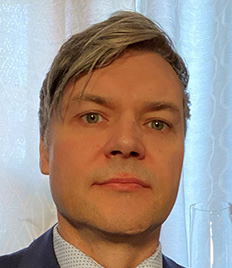 |
Chris Clarke McQueen Canada Chris Clarke McQueen is a Yellowknife Chipewyan Indigenous architect from the Lutsel K’e Dene First Nation in Canada’s Northwest Territories. He has a Bachelor of Environmental Science and a Master of Architecture from the University of Calgary, and is currently completing a PhD at McGill University in “The Architecture of Traditional Indigenous Medicine: The Design of Health and Wellness Facilities for Traditional Medicinal and Healing Practices.” Chris is also the Chief Architect with the Department of Health and Social Service of the Government of the NWT when not on leave for his PhD research, as well as a LEED (Leadership in Energy and Environmental Design) Accredited Professional, and an EDAC (Evidence-based Design Accreditation and Certification) credentialed individual through the US Centre for Health Design. Having been born and raised on the traditional territory of his First Nation in the far north of Canada, Chris is honoured to be able to give back to his people and his land through the research he has the opportunity to collaborate on through the Fulbright Arctic Initiative. |
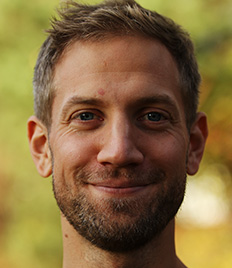 |
Andreas Østhagen Norway Andreas Østhagen is a Senior Research Fellow at the Fridtjof Nansen Institute in Oslo, Norway. Østhagen is also an affiliated Senior Advisor at the High North Center at Nord University Business School; a Senior Fellow at The Arctic Institute, Washington DC; and an Associate Professor at Bjørknes University College where he teaches the course ‘Geopolitics of the Arctic’. From the Norwegian Arctic, Andreas has been concerned with Arctic security issues and ocean politics for a decade. He started working for the Norwegian Government (North Norway European Office) in Brussels on EU-Arctic affairs (2010-2014), before switching to research and academia: for the Norwegian Institute for Defence Studies (IFS) in Oslo (2014-2017), with shorter work-stints at the Centre for Strategic and International Studies (CSIS) in Washington DC (2011) and the Walter & Duncan Gordon Foundation in Toronto, Canada (2013). Østhagen is the author of Coast Guards and Ocean Politics in the Arctic (Palgrave, 2020) and has published a number of articles, reports and op-eds, including in Ocean Development and International Law, Geopolitics, Defense Studies, Journal of Military and Strategic Studies, Marine Policy and Arctic Review on Law and Politics. Currently, his work focuses on maritime disputes in the north and beyond, under the larger framework of international relations and Arctic geopolitics. In addition, he has worked on questions concerning security, legal frameworks, and natural resource development across Arctic states and regions. Østhagen holds a PhD in international relations (2015-2019) from the University of British Columbia focused on ocean politics and conflict. He also holds a Master of Science (2009-2010) from the London School of Economics in European and international affairs, and a bachelor’s degree in political economy from the University of Bergen and the Norwegian University of Science and Technology (2006-2009). |
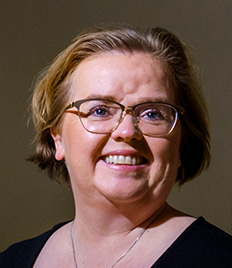 |
Silja Bára Ómarsdóttir Iceland Dr. Silja Bára Ómarsdóttir is Professor of International Affairs at the Faculty of Political Science at the University of Iceland. Her research mainly focuses on Icelandic society and politics, reproductive rights, Iceland’s foreign and security policy and feminist international relations. She holds degrees in BA, MA and PhD degrees international relations from Lewis & Clark College, the University of Southern California, and University College Cork, as well as post-graduate certificates in methodology of social sciences and university teaching from the University of Iceland. She is engaged in numerous research projects on feminist foreign policy, peace studies, resilience, and societal security. She is the vice chair of the board of the Icelandic Red Cross, and the Institute of International Affairs at the University of Iceland. She is also a member of the Icelandic chapter of the Nordic Women Mediator Network. |
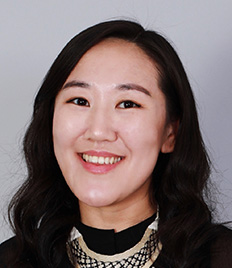 |
Lena Popova Russia Lena-Ayaana Popova is from the village of Arylakh, Sakha (Yakutia) Republic. She is a researcher at the International UNESCO Chair “Social and Human Adaptation of the Arctic Regions to Climate Change and Globalization”, North-Eastern Federal University. She graduated from the University of Paris-Saclay with Master in Arctic Studies and is doing her PhD in Geography at the University of Manitoba. Lena has a wide range of research interests that are intertwined with each other: remote sensing, traditional way of life, indigenous knowledge, climate change, social and economic development of the Arctic and spiritual culture. Lena is an alumnus of III Korea Arctic Academy, had internships at the Alfred Wegener Institute and Korea Polar Research Institute (Arctic Science Fellowship). She loves philosophy, sport and spending time in Nature. |
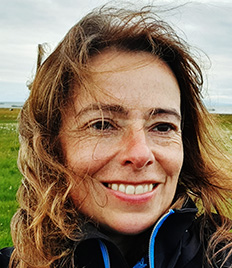 |
Anu Soikkeli Finland Anu Soikkeli is an architect with broad experience in research. She is presently an associate professor in Arctic Architecture and Environmental Adaption at Oulu School of Architecture, University of Oulu. She holds a Ph.D. in both Architecture and History. Her research interests include the history of architecture, the restoration of wooden buildings, the identities of historical towns and villages as well as the human-environmental relationships in the Arctic. She is the project leader in the national research project “Reshaping Living: New Structure and Life for Old Suburbs”, which is aiming to enhance the vitality of these communities and enrich the range of housing solutions and dwelling types in them. She is also the Finnish coordinator in the international project Arctic Heritage: Developing architectural solutions and conservation techniques for unique cultural objects. Anu Soikkeli is a board member in The Nordic Association of Architectural Research and representative body member in the Museum of Finnish Architecture. Her Fulbright project seeks to find possibilities for planning culturally and environmentally appropriate villages while examining how community-driven policies and practices in built environments can positively support human health and well-being. |
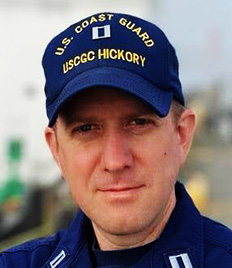 |
Kristopher Thornburg United States Kristopher Thornburg is an engineer by training and serves as a Lieutenant Commander in the United States Coast Guard. He is a permanent cutterman and has served aboard three ships with missions ranging from ice breaking on the Great Lakes to law enforcement in the Eastern Pacific Ocean. He most recently served as Executive Officer of U.S. Coast Guard Cutter HICKORY, stationed in Alaska where he regularly sailed on the Bering Sea. Currently, Kris is stationed at the U.S. Coast Guard Research and Development Center and works to advance polar technologies for the fleet. Kris’ research interests are interdisciplinary and center on security studies in a variety of settings. His Fulbright Arctic Initiative research will focus on strategic international collaboration for Arctic maritime domain awareness. Kris earned his Ph.D. in Industrial Engineering with a focus on Human Factors Engineering from the University of Iowa. Before entering service in the Coast Guard, he was a postdoctoral associate at the Massachusetts Institute of Technology. |
